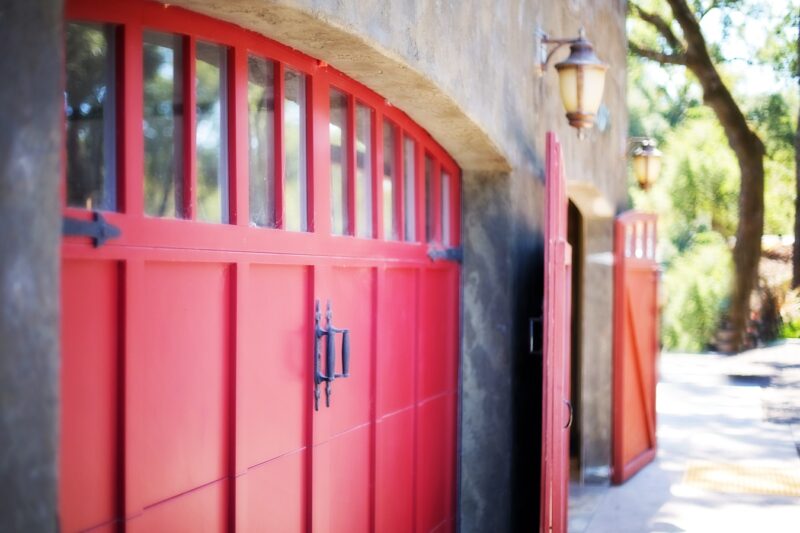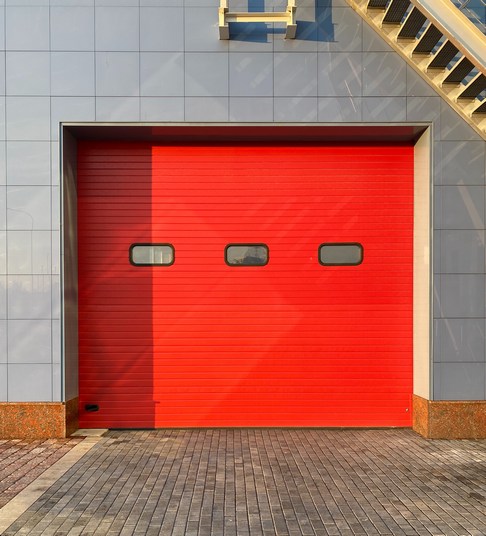Garage doors are an essential part of our homes, providing security and convenience. However, like any mechanical system, they can sometimes encounter problems. In this blog post, we will explore some common issues that homeowners face with their garage doors and provide practical solutions to fix them.
1. Noisy Operation
Noisy operation is one of the most common problems with garage doors, and it can be caused by various factors, such as worn-out rollers, loose hardware, or unbalanced springs. A noisy garage door can be annoying and disruptive, and it can also indicate a potential safety issue. Some of the tips and tricks for fixing a noisy garage door are:
- Lubricate moving parts: Apply a silicone-based lubricant to hinges, rollers, and springs. This reduces friction and noise.
- Tighten loose hardware: Check for loose nuts, bolts, and screws. Tighten them to eliminate rattling sounds.
- Replace worn-out rollers: If your rollers are worn or damaged, replace them. Rollers can be made of plastic, steel, or nylon, and they have different lifespans. Worn-out rollers can cause squeaking or grinding noises.
- Adjust the spring tension: If your springs are too tight or too loose, they can cause vibration and noise. You can use a scale or a level to measure the force and balance of the springs. Adjust the tension according to the manufacturer’s instructions. Be careful when handling springs, as they can be dangerous.
- Insulate the door: If your garage door is metal, it can amplify the noise from the opener and the tracks. You can add insulation to the door panels to reduce the noise and improve the energy efficiency. You can use foam, fibreglass, or reflective insulation.
2. Door Stuck in the Open or Closed Position

A door stuck in the open or closed position can be a frustrating and potentially dangerous problem. It can prevent you from accessing your garage, damage your vehicle, or compromise your security. There are several possible causes and solutions for this common garage door problem:
- Blocked sensors: If your garage door has photoelectric sensors that detect obstacles, they may be blocked by dirt, debris, or misalignment. This can prevent the door from closing or opening properly. To fix this, you need to clean the sensors, remove any objects in their path, and align them correctly.
- Broken springs: If your garage door has torsion or extension springs that help lift and lower the door, they may break due to wear and tear or extreme temperatures. This can cause the door to get stuck in the open or closed position, or fall down suddenly. To fix this, you need to replace the springs with the help of a professional, as they can be dangerous to handle.
- Worn-out rollers: If your garage door has rollers that glide along the tracks, they may wear out or get damaged over time. This can cause the door to get stuck or make loud noises. To fix this, you need to lubricate the rollers or replace them if they are beyond repair.
- Misaligned tracks: If your garage door has metal tracks that guide the rollers, they may get bent, warped, or loose over time. This can cause the door to get stuck or jammed. To fix this, you need to check the tracks for any damage and adjust or replace them if needed. You also need to tighten any loose hardware, such as screws or bolts15
- Faulty opener: If your garage door has an electric opener that controls the movement of the door, it may malfunction due to various reasons, such as power outage, dead batteries, faulty wiring, or worn-out gears. This can cause the door to get stuck or not respond to the remote or keypad. To fix this, you need to check the power source, replace the batteries, reset the opener, or repair or replace the opener if necessary.
3. Remote Control or Keypad Malfunction
Related:
When your garage door remote control or keypad stops working, it can be frustrating. Here are some troubleshooting steps:
- Check the battery: Replace the batteries in your remote control or keypad if they are dead or low.
- Reprogram the remote: Follow the manufacturer’s instructions to reprogram your remote control or keypad.
- Clear the memory: If reprogramming doesn’t work, clear the memory of your garage door opener and set it up again.
4. Slow Response Time
If your garage door takes forever to respond to your commands, it can be inconvenient and time-consuming. Here’s what you can do:
- Check the remote control range: Make sure you are within the recommended range to operate your garage door opener.
- Replace the batteries: Weak batteries can cause a delay in the signal transmission. Replace them with fresh ones.
- Inspect the antenna: Ensure that the antenna on the garage door opener is not damaged or obstructed.
5. Uneven Closing or Opening
If your garage door closes or opens unevenly, it can be a safety hazard and cause further damage. Here’s how to address this issue:
- Check the tracks: Inspect the tracks for any debris or obstructions. Clean them thoroughly and remove any obstacles.
- Adjust the limit switches: The limit switches control the opening and closing positions of the door. Follow the manufacturer’s instructions to adjust them properly.
- Balance the door: If the door is unbalanced, it can strain the opener and cause uneven operation. Consult a professional to balance the door.
Conclusion
Garage door problems can be frustrating, but with a little troubleshooting and maintenance, most issues can be resolved without calling a professional. Remember to always prioritize safety and consult a professional if you are unsure or uncomfortable with any repair tasks. By addressing these common problems, you can ensure that your garage door operates smoothly and securely for years to come.











